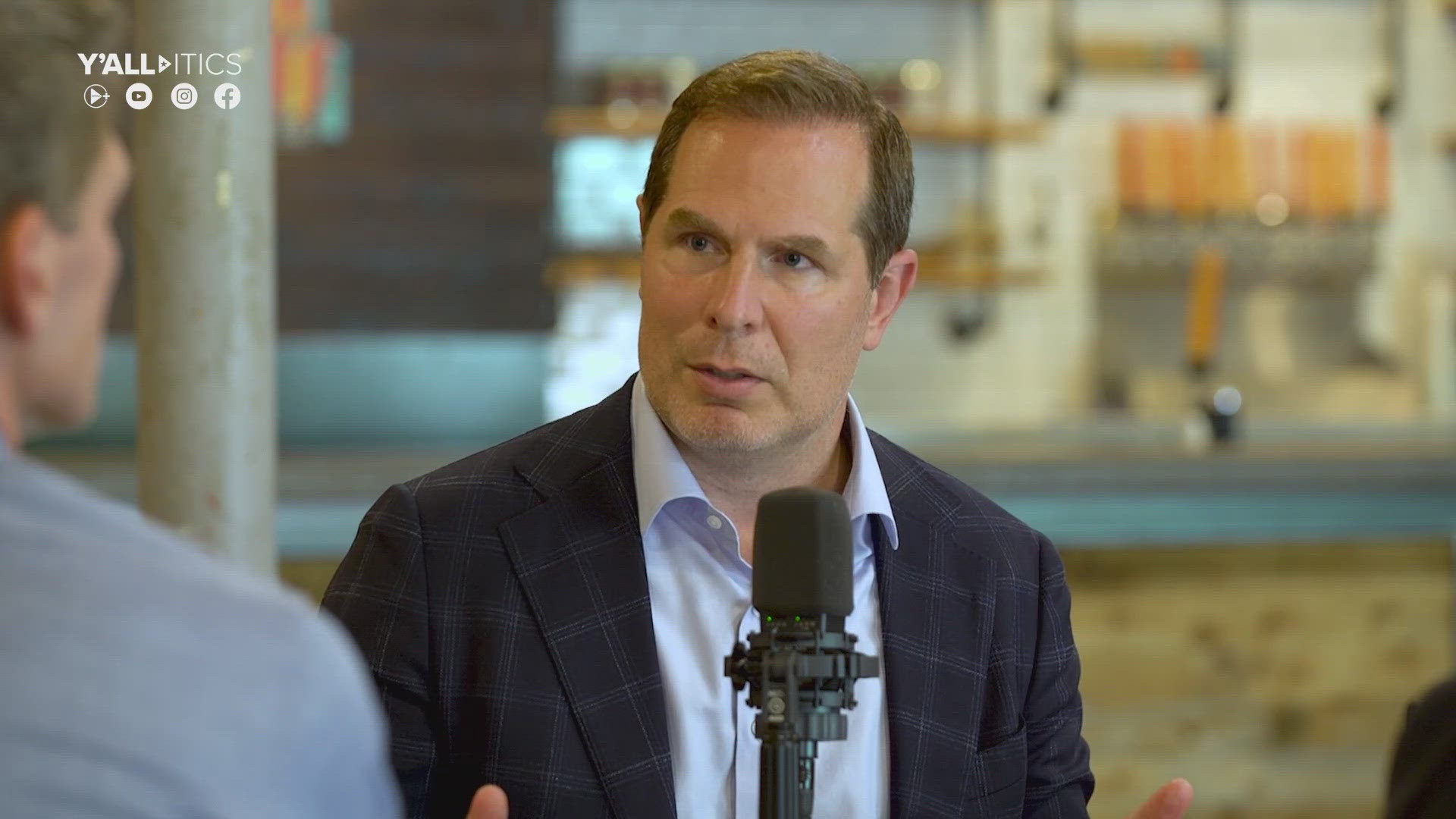DALLAS — Can citizens force a city to hire more cops? Dallas is about to find out.
The non-profit organization Dallas HERO has proposed a charter amendment that would force city leaders to raise pay and hire hundreds of officers.
“The reason we’re talking about this is because response times are so poor to the worst crimes that there are. You’re looking at 12 minutes. 12 minutes for murders, shootings and stabbings. That’s completely unacceptable. It’s completely below the national norm. The minimum standard would be 8 minutes,” Dallas HERO Executive Director Pete Marocco told us on Y’all-itics.
The Dallas Police Department currently has around 3,000 officers.
Dallas HERO wants that number to grow to 4,000 officers at a minimum, which would lead to a ratio of three officers per 1,000 citizens.
Marocco says the key to recruiting and retaining more officers is raising pay to the level that would place DPD among the top five of all departments in the north Texas region.
That would take a more than $185 million increase to the city’s police department budget, bringing the total expenditure to $871 million.
Dallas HERO argues the city can afford the increase with the money coming from year-over-year revenue increases, and by making security and the police department the city’s top priority until they reach the required levels.
Another proposed charter amendment the group successfully got on the November ballot would allow citizens to sue city officials if they’re not following the law, whether that be a state law, city ordinance or even the city charter.
“You have laws, particularly, that protect citizens from crimes that are simply not being prosecuted. This is very serious. People are just saying hey, I’m just not going to abide by the laws of Texas. I’m just not going to prosecute crime. That’s something that’s very concerning,” Marocco said. “There’s this feeling of impunity and we need to turn that around.”
One of the examples Marocco points to is Dallas County District Attorney John Creuzot’s former policy of not prosecuting thefts of “necessary” items under $750, such as diapers, baby formula, and even food.
But Creuzot rescinded that policy after he was re-elected to a second term, and after a firestorm of criticism.
Of all the proposed charter amendments, this one is seen as the one most likely to face a legal challenge.
“People may challenge this in court. I think we’re going to win in court because ultimately laws are there for everybody, they’re not so the City Council can ignore them," Creuzot said.
The final Dallas HERO charter amendment Dallas voters will decide would make the pay for the city manager performance-based.
Every year, the city of Dallas conducts a community survey to determine what citizens think are the biggest problems facing the city.
As part of that survey, citizens would be asked to rate five key metrics, ranging from “not a problem” to “a major problem”: crime, homelessness, litter, panhandling, and infrastructure/streets.
The “stick” under the proposed amendment is if a city manager is only successful in dealing with two of the top five problems, that person could be terminated. The “carrot” would be bonuses if a problem is successfully tackled.
“This is a $2 billion enterprise that affects millions of people. And so a manager, the chief executive of that enterprise should be compensated well. But I think, like everybody, everybody understands if you don’t do your job, you’re probably not going to keep it. You’re not going to get bonuses,” Marocco explained.
Dallas HERO had to gather enough valid signatures to force the proposed amendments on the November 5 ballot.
The city requires a minimum of 20,000 signatures.
Dallas HERO says its three proposed amendments received 169,000 signatures.
“We’re looking at a very marginal standard here. This is very minimal. All of these amendments that we’re proposing are based around the theory of establishing a floor. We’re not going to go below this floor. And if you as city leaders aren’t making it, you’re out,” Marocco said.
Marocco also discusses if he thinks other Texas cities might adopt similar amendments if they’re successful in Dallas. And he explains how long it might take for the Dallas Police Department to reach the proposed funding and staffing levels. Listen to the entire episode to learn more.

